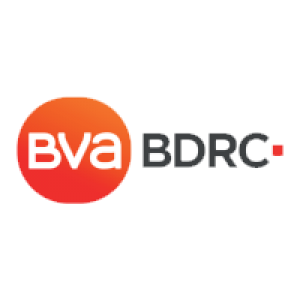A school’s reputation for academic excellence is the leading driver of recommendation for international schools. This was a finding from BVA BDRC’s recent international schools brand equity study.
Reputation is an asset that schools need to build over many years, if not decades. Sometimes this is supported by league tables and the university destinations of their student body. However, there is a distinction between schools having a ‘reputation for academic excellence’ and in reality having the best teachers.
Selective schools are able to reference better academic results as a by-product of their admissions policies, yet inclusive schools (taking children with a range of capabilities) need to major on other factors. Both selective and inclusive schools can recruit the best teachers, and indeed, the ability to cater for a wider range of capabilities can make for an even better teacher.
It can be difficult to quantify and qualify what constitutes a ‘good teacher’. While there are professional bodies that can evaluate teacher performance, ultimately it is the parent who will make the judgement on whether the school has good teachers. This judgment is usually made via feedback on teachers from their children.
For those enrolling in a new school, the dynamic is different as the children have not yet met or experienced their teachers. Referring to other parents is an option, however a lot of decisions on choosing the school is based on the school tour. It is essential that schools communicate and demonstrate a convincing argument on why they have the best teachers and the best teaching environment. One way parents judge a school is by the apparent happiness of its students. But perhaps equally important is seeing happy teachers, who visibly enjoy their work and are not too stressed.
Harder measures that can support the argument for having ‘the best teachers’ are
- how teachers are recruited including their required levels of experience specifically in international schools
- on-going training and up-skilling
- the type of support structures that the school can give to the teacher in and outside of the school.
But further research is needed to really understand the impact of these measures on parent and student perceptions of their teachers. Surveys of students, particularly younger children, can be challenging as they lack the maturity to fill out the survey forms in a responsible manner.
One way to mitigate this is to make the survey broader. Covering the students’ overall experience with the school, e.g. ratings of facilities, catering, sports programmes, etc. and combining this with ratings of teachers and education programmes in general. Here, students can see the material benefit in providing more honest answers that lead to positive change.
We can also use a wish list for education, in terms of what represents an ideal teacher. This then de-personalises the responses to ensure the answers are more honest.
Whilst the school should hold expertise in what constitutes a good education, it is the judgement of paying parents which ultimately results the reputational success of a school. Parents’ high involvement with the school shapes their opinion on what constitutes the ideal teacher and teaching environment, despite not being subject matter experts themselves.
Their evaluations can be very broad, ranging from academic progress of their child, the levels of attention given to the individual child, how at ease the child feels in the classroom and the general ‘vibe’ of the classroom (of which there are many measures as subsets).
Assessment of the role of technology in learning is also important (including whether there is too much reliance on iPads) as well as the class structures and class duration. Even classroom design is becoming important in these evaluations. In response, some schools are using more innovative approaches such as open plan classrooms and rotating teachers and children across multiple classrooms. This is claimed to create a better teaching dynamic and allows for children with similar abilities to group together.
Schools can use these insights to guide their investment in technology and infrastructure, but also to attract the best teachers from the open market.
This can assist the development of a ‘teacher value proposition’, a completely new area of research.
Click here to read this article on BVA BDRC Asia






